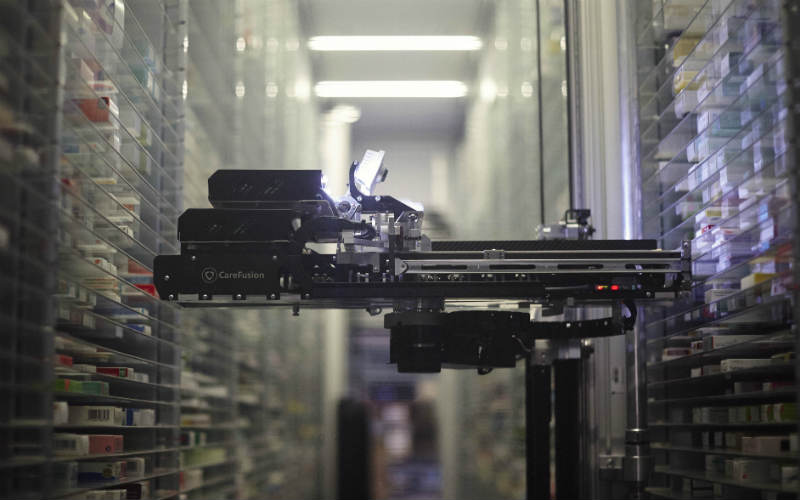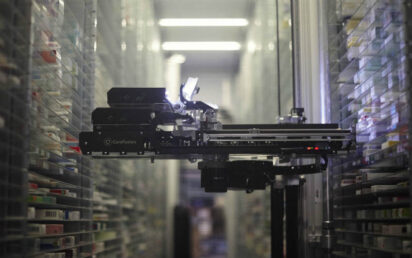Serial entrepreneur Mark Livingstone knows a thing or two about subscription businesses.
Livingstone was one of the founders and a former CEO at LOVEFiLM, the postal DVD service which also pioneered digital downloads of movies and streaming services.
“I was worldwide MD at LEGO – where I licensed the IP for Star Wars and Harry Potter – but decided to do something more entrepreneurial,” he tells BusinessCloud of a pivotal moment 15 years ago.
“I was pretty inspired by the model of Netflix in the US, and felt it was only a matter of time before Netflix came to Europe. I got some backing and bought a company called ‘DVDs on Tap’ with Simon Morris.
“We rebranded the company LOVEFiLM and built a DVD subscription service, which effectively was a replica of what Netflix was in the US. We lived by the phrase ‘plagiarise with pride’: we would literally look at Netflix every day and adapt our user interface and our UX and branding and proposition to European eyes.”
This approach saw them build the subscriber base from 5,000 to 250,000 by the time Livingstone left the business two and a half years later. It would eventually reach 1.5m and be sold to Amazon in 2011 for a reported £200m.
He was also one of the key early investors behind healthy snacking start-up Graze, which began when a colleague bemoaned the fact that there was nowhere to buy nutritious food near the office.
Livingstone cites Graze as a perfect example of how a subscription business should work. “One person would get it in an office, put it on their desk – and before you knew it, everyone in the office would be subscribing.”
The distinction between running a subscription business in the leisure industry and highly regulated medical sector would have been made brutally apparent when, around the time he joined Chemist Direct as CEO in 2015, rival Pharmacy2U – founded by pharmacist Daniel Lee 16 years before – was fined £130,000 by the Information Commissioner’s Office for selling the names and addresses of more than 21,000 patients without their consent.
Deputy commissioner David Smith stated at the time: “Patient confidentiality is drummed into pharmacists. It is inconceivable that a business in this sector could believe these actions were acceptable. Put simply, a reputable company has made a serious error of judgement.”
In issuing an apology for the incident, which saw the details bought by an Australian lottery company and a health supplements firm, then-MD Lee stressed that “no medical information, email addresses or telephone numbers were sold”.
The following year Leeds-based Pharmacy2U was merged with Midlands firm Chemist Direct, with Livingstone named CEO and Lee becoming superintendent pharmacist. The move created a business with 1.5 million customers to be served from a new £3.5m dispensing hub in West Yorkshire.
Fast-forward four years and – before COVID-19 hit – Pharmacy2U dispensed repeat prescriptions to a quarter of a million NHS and private patients every month, making it the clear leader in its field.
With an astonishing 43 per cent of the UK population suffering from a chronic repeat condition, requiring a prescription, there are many more people to attract to the service through TV advertising and other marketing channels.
“What I saw was an industry that had been in bricks and mortar for the last 300 years and had gone through massive upstream innovation in the quality of drugs that were being prescribed – but the last mile of delivery hadn’t changed in those 300 years,” says Livingstone. “I thought: ‘There’s no difference between subscription and prescription’.
“The epiphany for me was that this is a massive market – and no one’s been trying to change it for the better in 300 years. We’ve grown at 20,000- 30,000 patients per month in the last three years… we’re 20 times larger than the closest competitor in the UK.”
Taking repeat prescriptions online has saved the NHS more than £7m since 2014, according to Pharmacy2U, as it is paid 38p less per item dispensed than the average high street pharmacy. “As we scale, the NHS pays us less to do exactly the same job as a community pharmacist would do on the high street. The reason for that is our cost structure is lower than any community pharmacist because we have a single location and we use technology to dispense,” says Livingstone.
However in a modern world where bank branches and Post Offices are systematically closing on the high street, he is keen to stress that “we don’t want to eat community pharmacies’ lunch”. Indeed pharmacists’ expertise could help ease the burden on GPs when the world returns to relative normality following COVID-19 lockdown.
“Our belief is the role of the pharmacy on the high street is to provide services and one-to-one consultation for the community,” Livingstone, speaking to BusinessCloud before the pandemic reached the UK, says. “We believe that we’re part of the transition of them offering great services and helping triage GP surgeries.
“They do that brilliantly – and we would never be foolish enough to say we could do it any better. It’s just how Amazon coexists with Waterstone’s now.”
Before she died last year, my bed-bound grandmother required an assortment of repeat medication but wasn’t able to access the technology needed to manage her conditions. However Livingstone isn’t concerned that the move online might exclude the older segment of the population.
“For every example that I can cite of your grandmother, who wasn’t technically enabled and didn’t have Wi-Fi, there are three or four who I can cite who are,” he says. “I’m thinking of my mother, who unfortunately passed away the year before last.
“The most watched viewing machine in the house was not the television: it was her iPad. We do not ascribe to the belief that older generations are not technically enabled: if you give them applications that are of use to them, and you provide multi-channels of communication and access to your service, you’ll win.
“We have a 100-seat call centre, we have Hotmail, live chat, SMS, post… you can access our service through almost any medium. But the lion’s share comes through smartphones and our app.”
As well as systemising the process, using robots to pick and dispense medication gives Pharmacy2U great clinical accuracy, according to Livingstone. “Automation touches all of our processes, even things that are manually picked – for example, we use a system called ‘pick by light’ where lights flash on to the tote where the drug you need is stored. There are no pure manual processes – everything is either automatic or semi-automatic.
“Our robots are like massive vending machines with smaller robots within them. They account for something like 60 per cent of our dispatches and help us dispense more than 700,000 items of drug a month (pre-pandemic) – every one and a half seconds of operation.”
Pharmacy2U employs 350 people with a tech team of 50-60 which has more than tripled in the last three years. It has attracted £40m of funding and been profitable before marketing since April of last year, with revenues approaching £100m.
In October it will open a second facility in Leicester which will ultimately increase its capacity tenfold. “At scale it will be capable of dispensing close to seven million items of drug per month,” says Livingstone.
“I believe that we can increase [our turnover] by 10 times quite easily. So has this company got unicorn potential? Absolutely.”

